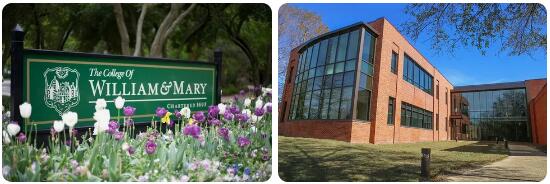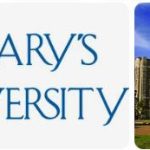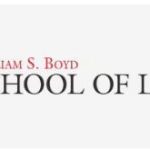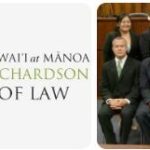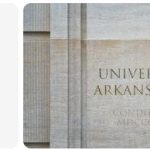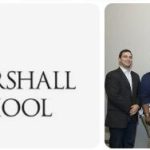The College of William and Mary Marshall-Wythe School of Law was founded in 1779 as the first law school in the United States. It was named after George Wythe, who served as a professor at the law school from 1779 to 1806. He was also a signer of the Declaration of Independence, and the first professor to teach courses in legal ethics and constitutional law. The school’s first class of students included Thomas Jefferson, James Monroe, and John Marshall. Since then, it has grown to become one of the most prestigious law schools in the country. In addition to its strong academic reputation, it is also known for its commitment to public service and community engagement. Over its long history, it has produced many distinguished alumni who have gone on to become prominent members of society, including Supreme Court justices, senators and governors. The school continues to be highly ranked by U.S. News & World Report and is consistently among the top 25 law schools in the nation.
College of William and Mary Marshall-Wythe School of Law is located in the state of Virginia. As one of the leading law programs, College of William and Mary Marshall-Wythe School of Law has a high average LSAT score of 161-166 when recruiting new students. As a return, the median starting salary for law graduates reaches $140,000 per year. See the following table for detailed admissions information and career profiles of College of William and Mary Marshall-Wythe School of Law.
Admissions: College of William and Mary (Marshall-Wythe)
The Marshall-Wythe School of Law at the College of William and Mary is an excellent choice for students looking for a top-notch legal education. With an acceptance rate of about 40%, the school is highly selective in its admissions process. The average LSAT score for accepted students is 164 and the median GPA is 3.68, indicating that only those with exceptional academic records are accepted. The school also looks carefully at letters of recommendation and experiences outside the classroom when considering applicants. In addition to academic qualifications, the admissions committee looks for evidence of community service, leadership qualities, analytical skills, and strong writing abilities. Those admitted to the school come from all over the country and bring with them a wide variety of backgrounds and experiences that enrich the learning environment.
| Fall 2019 Admissions and Enrollment Statistics | |
|---|---|
| Total number of full- and part-time applicants | 4,980 |
| Total number of full- and part-time acceptances | 1,109 |
| Overall acceptance rate | 22.3% |
| Total number of full- and part-time first-year students enrolled | 209 |
| Number of full-time program applicants | 4,980 |
| Number of full-time program acceptances | 1,109 |
| Full-time acceptance rate | 22.3% |
| Number of first-year full-time students enrolled | 209 |
| Number of part-time program applicants | N/A |
| Number of part-time program acceptances | N/A |
| Part-time acceptance rate | N/A |
| Number of first-year part-time students enrolled | N/A |
| Fall 2019 GPA and LSAT Scores | |
| 25th-75th percentile GPA scores for all students | 3.42-3.77 |
| 25th-75th percentile LSAT scores for all students | 161-166 |
| 25th-75th percentile undergraduate GPA for full-time students | 3.42-3.77 |
| 25th-75th percentile LSAT scores for full-time students | 161-166 |
| 25th-75th percentile undergraduate GPA for part-time students | N/A |
| 25th-75th percentile LSAT scores for part-time students | N/A |
Careers: College of William and Mary (Marshall-Wythe)
| Bar Statistics (Winter and Summer 2018 administrations) | |
|---|---|
| State where the greatest number of first-time test takers took the bar | VA |
| School’s bar passage rate for first-time test takers | 88.9% |
| Statewide bar passage rate for first-time test takers | 81.6% |
| Class of 2018 Graduates | |
| Total graduates | 210 |
| Graduates employed at graduation | 87.9% |
| Graduates known to be employed nine months after graduation | 96.7% |
| Starting Salaries of 2018 Graduates Employed Full-time | |
| 25th percentile private sector starting salary | $110,000 |
| Median private sector starting salary | $140,000 |
| 75th percentile private sector starting salary | $160,000 |
| Percent in the private sector who reported salary information | 81% |
| Median public service starting salary | $53,635 |
| Areas of Legal Practice (Class of 2018) | |
| Percent employed in academia | 0.0% |
| Percent employed in business and industry | 7.0% |
| Percent employed in government | 15.0% |
| Percent employed in all judicial clerkships | 14.0% |
| Percent employed in law firms | 60.0% |
| Percent employed in public interest | 4.0% |
| Percent employed in an unknown field | 0.0% |
| Percent employed in a judicial clerkship by an Article III federal judge | 4.0% |
| 2018 Graduates Employment Location | |
| Graduates employed in-state | 36% |
| Graduates employed in foreign countries | 1% |
| Number of states where graduates are employed | 25 |
| New England (CT, ME, MA, NH, RI, VT) | 1.0% |
| Middle Atlantic (NY, NJ, PA) | 14.0% |
| East North Central (IL, IN, MI, OH, WI) | 6.0% |
| West North Central (IA, KS, MN, MO, NE, ND, SD) | 1.0% |
| South Atlantic (DE, DC, FL, GA, MD, NC, SC, VA, WV) | 65.0% |
| East South Central (AL, KY, MS, TN) | 1.0% |
| West South Central (AR, LA, OK, TX) | 2.0% |
| Pacific (AK, CA, HI, OR, WA) | 2.0% |
| Mountain (AZ, CO, ID, MT, NV, NM, UT, WY) | 3.0% |
| Employment location unknown | 4.0% |
| Career Services | |
| (Data appear as originally submitted by this school) | |
| Career services operations | Our core missions are to: *partner with students and alumni to help them explore career options, learn about and obtain employment opportunities, further long-term professional development, and achieve career satisfaction; and *cultivate constructive, mutually beneficial relationships with employers. |
| Job Type | |
| Bar admission required or anticipated (e.g., attorney and corporate counsel positions, law clerks, judicial clerks) | 93.0% |
| J.D. preferred, law degree enhances position (e.g., corporate contracts administrator, alternative dispute resolution specialist, government regulatory analyst, FBI special agent) | 3.0% |
| Professional/other (jobs that require professional skills or training but for which a J.D. is neither preferred nor particularly applicable; e.g., accountant, teacher, business manager, nurse) | 3.0% |
| Nonprofessional/other (job that does not require any professional skills or training or is taken on a temporary basis and not viewed as part of a career path) | 1.0% |
